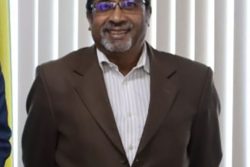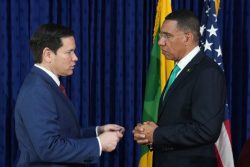GUATEMALA CITY, (Reuters) – Guatemala’s Foreign Minister said yesterday that United Nations Secretary-General Antonio Guterres should not interfere with the country’s decision to bar an anti-corruption prosecutor.
“Mister secretary-general, you are at the service of the member states, it is unacceptable and against the purpose of the United Nations to try to be a supranational entity,” Foreign Minister Sandra Jovel said.
Earlier this week, Guatemalan authorities barred Commissioner Ivan Velasquez of the International Commission against Impunity in Guatemala (CICIG) from entering the country.
An independent international entity, the CICIG was established in 2007 to investigate criminal groups in Guatemala, and it can conduct independent investigations, act in conjunction with the country’s prosecutors and make public policy recommendations to help fight criminal groups.
CICIG’s mandate is renewed by the Guatemalan government every two years, but its head is appointed by the United Nations.
Guterres said through a spokesman on Wednesday that the U.N. Secretariat had serious concerns about the decision, adding that it did not appear to be consistent with the agreement on the establishment of Commission.
Jovel said on Thursday that the International Commission Against Impunity had meddled in Guatemala’s affairs, pressured Congress to change laws and violated the presumption of innocence.
A representative for the CICIG did not respond to a request for comment.
Earlier this week, Guatemalan President Jimmy Morales said the country had barred Ivan Velasquez, head of the CICIG, from entry and asked the U.N. to send a replacement.
Guterres said on Wednesday that Velasquez would continue to run CICIG from outside Guatemala.
Morales has been in a dispute with Velasquez, who has tried to impeach the president for corruption and has targeted members of his family over suspected graft.
Morales has denied any wrongdoing and said on Thursday the decision to bar Velasquez was not taken for personal reasons.
The United Nations is facing pushback elsewhere in Central America.
Nicaragua’s government ordered the expulsion of a United Nations human rights delegation soon after it released a report condemning repression and abuses by the government.
At a Wednesday U.N. meeting, Nicaragua rejected an argument by the United States that recent unrest could threaten regional security.








